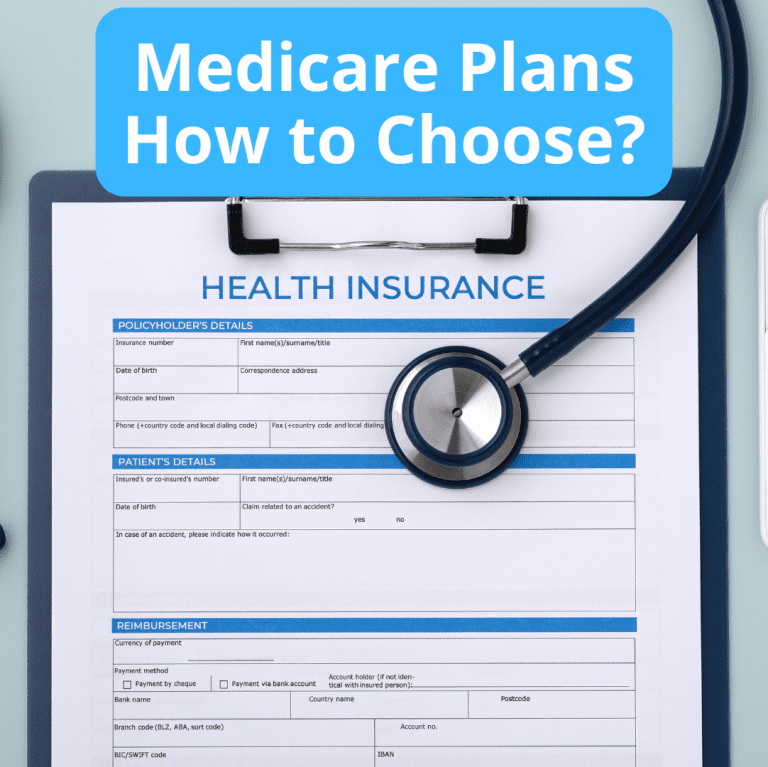Key Takeaways:
- Individuals under 65 with disabilities can qualify for Medicare after receiving Social Security Disability Insurance (SSDI) benefits for 24 months.
- Understanding the different parts of Medicare and additional coverage options like Medigap and Medicare Advantage is crucial for effective healthcare management.
How to Get Medicare Before You Turn 65 if You’re Disabled: Here’s Everything You Should Know
Navigating Medicare can be complex, especially for those who are under 65 and disabled. This guide aims to simplify the process and provide clear steps to ensure you receive the coverage you need.
Understanding Early Medicare Eligibility for Disabilities
Medicare isn’t just for those over 65. If you are under 65 and have a disability, you can still qualify for Medicare under certain conditions. Typically, individuals who have been receiving SSDI benefits for at least 24 months become eligible for Medicare. This eligibility extends to those with specific conditions such as Amyotrophic Lateral Sclerosis (ALS) or End-Stage Renal Disease (ESRD), which may expedite the enrollment process.
Who Qualifies for Early Medicare?
To qualify for Medicare before 65 due to a disability, you generally need to be receiving SSDI benefits. Conditions that qualify include severe, long-term disabilities that prevent substantial gainful activity. For instance, individuals with ALS receive Medicare benefits as soon as their SSDI benefits begin, while those with ESRD qualify for Medicare after requiring dialysis or a kidney transplant.
Conditions That Expedite Medicare Eligibility
Certain conditions expedite Medicare eligibility. ALS, also known as Lou Gehrig’s disease, allows individuals to receive Medicare benefits as soon as their SSDI benefits start. For those with ESRD, eligibility begins when they require regular dialysis treatments or have undergone a kidney transplant. These specific conditions bypass the typical 24-month waiting period, providing quicker access to essential healthcare services.
The 24-Month Waiting Period Explained
The 24-month waiting period for Medicare eligibility starts from the first month you receive SSDI benefits. Once you have received these benefits for 24 months, you are automatically enrolled in Medicare Part A (Hospital Insurance) and Part B (Medical Insurance) at the start of the 25th month. It’s important to keep this timeline in mind as it affects when your Medicare coverage will begin.
Managing the Waiting Period
During the waiting period, it’s crucial to maintain any existing health coverage you may have, such as coverage through an employer or a spouse’s plan. This can help bridge the gap until your Medicare benefits start. Additionally, some states offer Medicaid to individuals with disabilities, which can provide interim coverage.
Automatic Enrollment: How It Works
Automatic enrollment in Medicare occurs once you have received SSDI benefits for 24 months. You will receive a Medicare card in the mail three months before your coverage starts, along with a letter explaining your enrollment in Medicare Parts A and B. If you have ALS, your Medicare coverage starts as soon as your SSDI benefits begin, bypassing the 24-month waiting period. For those with ESRD, enrollment depends on when you start dialysis or receive a kidney transplant.
What to Expect with Automatic Enrollment
Upon automatic enrollment, you’ll receive a welcome package containing your Medicare card and important information about your benefits. It’s essential to review this information carefully and verify that all details are correct. Your Medicare card will indicate whether you are enrolled in Part A, Part B, or both. If you have any questions or discrepancies, contact the Social Security Administration (SSA) or Medicare for assistance.
Exploring Your Medicare Options
Once enrolled in Medicare, you need to understand your coverage options. The two main paths are Original Medicare and Medicare Advantage (Part C) plans. Original Medicare includes Part A and Part B, with the option to add Part D for prescription drug coverage. Medicare Advantage plans bundle Part A, Part B, and usually Part D into one plan offered by private insurance companies. These plans often provide additional benefits not covered by Original Medicare, such as vision, dental, and hearing services.
Original Medicare vs. Medicare Advantage
Original Medicare offers flexibility in choosing healthcare providers, but it has no cap on out-of-pocket expenses. In contrast, Medicare Advantage plans often have lower out-of-pocket costs and may include additional benefits. However, these plans typically require you to use a network of doctors and hospitals. It’s important to compare these options based on your healthcare needs and preferences.
Special Needs Plans (SNPs)
For those with specific health conditions, Special Needs Plans (SNPs) under Medicare Advantage can be particularly beneficial. SNPs tailor their benefits, provider choices, and drug formularies to best meet the specific needs of the groups they serve, including those with chronic conditions, those institutionalized, and dual-eligible individuals who qualify for both Medicare and Medicaid.
Additional Coverage: Medigap and Medicare Advantage Plans
Medigap policies, also known as Medicare Supplement Insurance, can help cover some of the costs that Original Medicare does not, such as copayments, coinsurance, and deductibles. However, Medigap policies are generally more expensive for individuals under 65, and availability varies by state.
Choosing a Medigap Policy
When considering a Medigap policy, it’s important to compare the benefits and costs of different plans. Some states require insurers to offer at least one kind of Medigap policy to individuals under 65, but premiums can be significantly higher than those for beneficiaries over 65. Evaluate your healthcare needs and budget to determine if a Medigap policy is right for you.
Medicare Advantage Plan Benefits
Medicare Advantage plans offer an alternative to Original Medicare with additional benefits and a cap on out-of-pocket expenses. These plans often include vision, dental, and hearing coverage, and some may offer wellness programs and gym memberships. However, it’s crucial to check if your preferred healthcare providers and facilities are in the plan’s network.
Navigating Costs and Coverage Gaps
Understanding the costs associated with Medicare is essential. While most people don’t pay a premium for Part A, there are deductibles and coinsurance costs. Part B typically requires a monthly premium, which can be deducted from your SSDI payments. It’s important to consider these costs and any additional expenses that may arise with Medigap or Medicare Advantage plans.
Managing Out-of-Pocket Expenses
To manage out-of-pocket expenses, consider enrolling in a Medigap policy or a Medicare Advantage plan with a cap on annual costs. Additionally, reviewing your healthcare needs and usage patterns can help you choose the most cost-effective plan. Look into programs like Medicaid or state assistance programs that can help lower costs for those with limited income.
Prescription Drug Coverage (Part D)
Medicare Part D plans cover prescription drugs, and choosing the right plan involves considering your medication needs and comparing plan options. Each state has different rules regarding Medigap policies for those under 65, so it’s important to check your state’s regulations and available plans. Part D plans vary in their formularies, premiums, and out-of-pocket costs, so it’s important to select a plan that covers your medications at a cost you can afford.
Steps to Take Once You’re Enrolled
Once you’re enrolled in Medicare, here are some steps to ensure you make the most of your coverage:
- Review Your Medicare Card: Confirm that your information is correct and understand your coverage start dates.
- Consider Additional Coverage: Evaluate whether a Medigap policy or Medicare Advantage plan is right for you based on your healthcare needs and financial situation.
- Sign Up for Part D: If you need prescription drug coverage, enroll in a Part D plan during your initial enrollment period.
- Stay Informed: Keep up with any changes in Medicare policies or benefits, and review your coverage options annually during the Medicare Open Enrollment Period.
Regular Health Checkups
Regular health checkups are crucial for managing your health effectively. Ensure that you schedule and attend all necessary appointments with your healthcare providers. Using your Medicare benefits for preventive services can help detect health issues early and manage chronic conditions more effectively.
Utilizing Medicare Resources
Medicare provides numerous resources to help beneficiaries understand their coverage and make informed decisions. Use the Medicare Plan Finder tool to compare plans and find the best options for your needs. Additionally, the State Health Insurance Assistance Program (SHIP) offers free counseling and assistance to help you navigate your Medicare choices.
Making the Most of Your Medicare Coverage
Understanding how to use your Medicare benefits effectively is crucial. Here are some tips:
- Know Your Benefits: Familiarize yourself with what services are covered under Parts A and B, and any additional benefits your plan may offer.
- Find Providers: Use Medicare’s online tools to find doctors, hospitals, and other healthcare providers that accept Medicare.
- Keep Records: Maintain detailed records of your healthcare services and expenses to manage your out-of-pocket costs and ensure accurate billing.
Staying Updated on Medicare Changes
Medicare policies and benefits can change annually, so it’s important to stay informed. During the Medicare Open Enrollment Period (October 15 – December 7), review your current coverage and compare other plans to see if they better meet your needs. Adjusting your plan can help you manage costs and ensure you have the necessary coverage for the upcoming year.
Resources for Assistance
If you have questions or need assistance with your Medicare options, consider the following resources:
- Medicare.gov: The official Medicare website provides comprehensive information on all aspects of Medicare.
- Social Security Administration (SSA): Contact the SSA for questions about your SSDI benefits and Medicare enrollment.
- State Health Insurance Assistance Program (SHIP): SHIP offers free counseling and assistance for Medicare beneficiaries.
Taking the Next Steps
Enrolling in Medicare due to a disability can be a complex process, but understanding the basics and exploring your options can help ensure you get the coverage you need. Remember to review your benefits annually, stay informed about any changes, and seek assistance when necessary.
Health Coverage Solutions for the Disabled
Navigating Medicare before you turn 65 due to a disability requires understanding your eligibility, coverage options, and the associated costs. By staying informed and proactive, you can ensure that you receive the healthcare coverage you need to manage your disability effectively. Regularly reviewing your plan and making adjustments during open enrollment periods will help you stay on top of your healthcare needs and costs. Utilize available resources and assistance programs to make informed decisions about your Medicare coverage. This proactive approach will empower you to navigate Medicare with confidence and secure the healthcare services you need.
Contact Information:
Email: [email protected]
Phone: 5105556789








